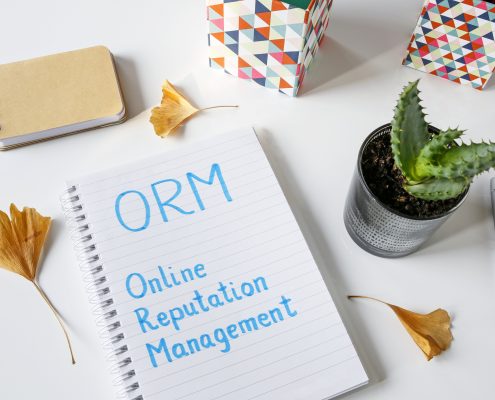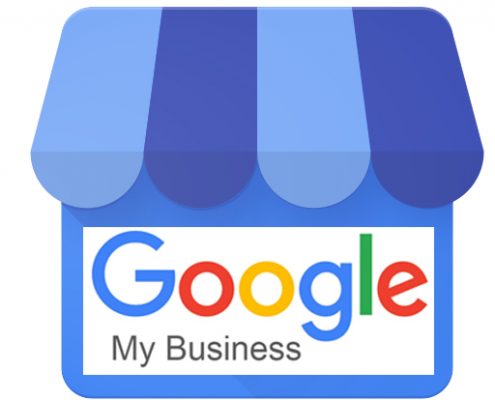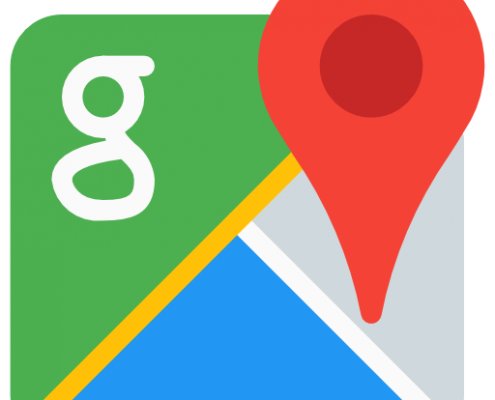We’re ready to answer your questions and jump start your project.

Turn web traffic into profits with LinkHelper’s affordable Phoenix small business web design
Whether you run a small Phoenix business or a Fortune 500 Company, your internet presence will make or break you.
If customers can’t find your business on the internet, check your customer reviews, or pull up your location on Google Maps, it’s a safe bet that they’ll look elsewhere for the goods and services they need.
So you have a Phoenix SEO strategy in place? Is your website attracting new customers? Can consumers find your business when they conduct a search with their smartphone?
Are you getting the most out of the powerful advertising tool ever available to business owners?
The Phoenix SEO experts at Linkhelpers are ready to make your website go viral. Our precision, math-based SEO will finesse your website to the top of the search engines and Google Maps. We approach SEO with one goal – to help you increase profits.
If you’re ready to get serious about your SEO advertising strategy, take a look at this page and see what we have to offer.
With over two decades of experience, we have the tools and experience required to be competitive on the internet.
Read our reviews and talk to one of our SEO professionals and see for yourself how we’ve stayed in business while so many other SEO Companies have fallen by the wayside.
With more than two decades of SEO experience, Linkhelpers can help you finesse your way to the top of the internet search engines.
Give us a call and find out how we can customize a Phoenix SEO strategy that accomplishes your goals and helps you run a successful business.
“We offer our Phoenix SEO clients monthly feedback relative to their website. These reports will help you answer questions like:”
.
Ranking your business on the internet search engines isn’t some mystical or magical process. Google uses complex mathematical formulas called algorithms that process various factors to determine what sites are the most relevant to a user’s search. If your SEO strategy fails to acknowledge these mathematical parameters, your website will not rank.
Phoenix SEO FACT: There is an endless amount of misleading (and entirely wrong) SEO related information on the internet.
While nobody has access to Google’s algorithms, our math-based approach to SEO seeks to decipher the clues that ultimately crack the code. In the Phoenix SEO business, success can only be measured by effectiveness. Our clients consistently rank at the top of the search engines because our approach to SEO is based on entirely on mathematics.
It’s important to remember that ranking your website won’t happen overnight, but most of our clients are surprised by how quickly they start seeing results. We utilize a proprietary, multi-pronged approach to SEO, so let’s break each part of the process down so that you fully understand the process.
At the heart of successful SEO are keywords and keyword phrases. These are the words that internet users type into the search engine toolbars when they want to find something they need. This may sound trite, but you should think of keywords as keys that open the doors to your website. If you rank your website for the right keywords, you are opening your door to consumers who need the goods or services you offer.
This begs the question, “How do I determine what keywords to use?” This is the first question our Phoenix SEO experts seek to answer for new clients. If you rank for the wrong keywords, you won’t drive customers to your website, or you’ll drive the wrong clients to your website. Either way, the end-goal of increasing profits will never be met.
“I had to hire an employee just to answer my business phone.”
To determine the best keywords for your Phoenix business, we conduct extensive research to discover the keywords most likely to be effective for your line of work. Oftentimes we find multiple keyword phrases with high potential, allowing us to create multiple points of entry to the website.
This is like having multiple storefronts to attract new clients, each with its own highly-specific focus.
Phoenix SEO FACT: The most popular keyword phrases aren’t always the best. If too many businesses are competing for the same SEO keywords, the results may be watered down to the point where it’s simply not effective.
We usually try to avoid generic SEO keyword phrases. It’s often better to arrow the focus in order to attract the BEST customers to your site. However, it’s sometimes impossible to ignore generic SEO keyword phrases.
In situations like these it’s necessary to generate quality marketing content to increase the site’s conversion rate.
Once we identify the best SEO keywords for your business, we will review them with you in full so that you can help us assess their overall potential. Again, there is no magic Phoenix SEO formula, so your input is essential to success. Our approach to assessing the most effective keywords is mathematically-based, which removes guesswork from the equation and guarantees success.
You probably have a keen understanding of your ideal customer, and maintain a working knowledge of your competition. However, it’s also important to understand how your customers and competition are using the internet to meet their own goals.
Once we identify SEO keywords, we need to analyze their effectiveness within the Phoenix internet marketplace. Our goal is to increase business profits, so we need to be certain that the customers we drive to your website will ultimately buy what you’re selling. We refer to this as the website’s “conversion rate.” That is, what ratio of people that visit the site ultimately make a purchase?
It’s also vital to investigate your competition to see whether they are also attempting to rank for the same SEO keywords. What we are left with is an in-depth market analysis that maximizes your ability to convert website traffic into real profits.
Phoenix SEO FACT: There is no better way to advertise your business then by focusing on your website’s SEO. Understanding your market maximizes your ability to attract customers and keep your competition guessing.
Every keyword has its own market size, so it often makes sense to rank for multiple SEO keywords on a single page and/or break them up into multiple landing pages. Every business is unique, so every Phoenix SEO strategy must also be unique.
This mathematical approach to market analysis is the reason why it works. By looking at factual data relative to marketing, we develop an understanding of your customer’s habits, and the techniques used by your competition to attract web-based business with SEO. In other words; we make you a key player in your chosen market, and it doesn’t matter if you’re starting a new Phoenix business or are firmly established.
Once we complete your SEO market analysis, it’s time to start focusing on implementing this knowledge into the framework of your website. While it’s always best to create a new website where the fabric of the SEO can be incorporated, we are often able to implement an SEO strategy into an existing website. Either way, it’s important to understand how this process unfolds.

Because Google’s algorithms seek to return the BEST result possible for every search, so it’s vital that the information presented offer information that satisfies the user’s query.
This math-based approach to content creation works because it acknowledges the fact that Google uses a mathematical formula to provide users with the information they seek.
In other words, your website’s content must be highly relative to the search. You need to show Google that you are an “expert” on a given subject by creating content that reflects your in-depth knowledge.
Phoenix SEO FACT: Quality content requires a professional touch. We urge our clients to work with our professional writers to create compelling, highly relative content to maximize their Phoenix SEO potential.
Creating highly relative content is only part of the puzzle. Google’s algorithms also look for a certain amount of keyword density on every page. If there are too few SEO keywords, the page won’t rank because the algorithm can’t identity the page’s relevance to the query. If there are too many SEO keywords on the page, Google’s algorithm will penalize the page for “keyword stuffing,” which is an obvious attempt to game the system.
This means that there is a “sweet spot” for keyword density on any given web page. You will find all sorts of SEO “advice” on the internet that counters our assertions, but that’s because they fail to understand the mathematics that govern search engine rules. Your Phoenix SEO success hinges on developing content that drives traffic to your site, which is only possible if you play by the search engine’s rules.
Many business owners get frustrated with SEO because Google rolls out various updates that cause them to lose their ranking position. Our clients don’t have this problem because we never try to game the system. We simply follow the rules and reap the benefits. If this sounds simple, it’s because it is simple. However, our background in mathematics makes it possible to understand these complex algorithms, and it’s the underlying reason for our unmatched success in the industry.

Creating highly relative content that falls within the Google’s keyword density algorithms will drive traffic to your website, but no Phoenix SEO strategy will succeed if the content doesn’t motivate the user to purchase the product. Remember, the goal of your SEO strategy is to increase sales, so you need content that’s also focused on savvy marketing so that consumers that visit your site become customers.
We work with professional writers with a background in marketing who generate content that generate sales and increase your conversion rate. This is accomplished with calls to action and other proven marketing techniques designed to motivate the reader to take the next step. Depending on the nature of your business, this may mean that the customer fills out a contact form, calls you on the phone, or perhaps even makes a purchase or reservation online.
Phoenix SEO FACT: Many SEO companies fail to understand that marketing is essential. Our clients succeed because we recognize that the goal is to earn revenue, not merely drive traffic to the site.

First, you need to think of the internet as world of its own. It is comprised of countless websites that have grown organically over time. Links between web pages are a part of this natural order. If Google’s algorithms detect a site attempting to manipulate the natural order of links, it will penalize the site making it impossible to rank.
Google uses its own ranking system to identify everything from small websites to the largest websites. There is a natural order to website distribution on the web because there are many small sites that get little to no traffic, but only a few major websites by comparison. Google uses 10 points of reference to rate websites according to the popularity. With every increase in popularity comes fewer websites that qualify.
Phoenix SEO
Think of this natural distribution like a lake full of fish. There are countless minnows all trying to grow larger by avoiding the larger fish and other predators that may try to eat them. Some will survive to grow larger and eventually predate on the smaller fish. If they survive, they grow even larger. Over time, only a few fish will grow to their maximum size.
Now if someone were to dump 100 extra large fish into the lake, imagine what it would do to the overall population? Google’s algorithms are designed to detect when a website violates the natural distribution of links on the internet, and penalizes them accordingly.
Phoenix SEO FACT: If you only have “high quality links” on your website, Google will detect it and you will be penalized.
A Phoenix SEO strategy will only be successful if the website’s link distribution mimics their natural order on the web. This means that your site needs a lot of “low quality” links, and very few “high quality links.”
If you fail to acknowledge the mathematics behind this organic link distribution, your Phoenix SEO strategy will ultimately fail.
What this means is that you cannot force your way to the top of the search engine results page. Instead, you need to finesse your way to the top.
Links are the means to this end because they boost popularity metrics in way that Google recognizes as legitimate.
It’s also important to use “long tail links” on your web pages. This means that the link is not attached to a single word, but rather to an entire phrase. This phrase is often identical to your keyword phrase, or related to it in some way. Sometimes our SEO professionals use whole sentences or questions when attaching a long tail link.

Citations are essentially links used to increase a website’s visibility on GoogleMaps. This is a vital part of your Phoenix SEO strategy if your business relies on customers living or working in your area. If you own a restaurant, retail store, or service-oriented business, citations make it possible to reach out to your client base in the most effective way possible. Please see our section below regarding Google My Business to learn more about the importance of this SEO technique.
As mentioned above, the content on your website must be relevant to the search query. It must also offer useful and pertinent information. Google wants users to readily find the information they’re looking for, and their algorithms have become much more adept at returning results that are more in line with the questions people actually ask when using Siri or Okay Google.
What all of this means is that you need to let Google know that you are an expert in your field. You need to offer web search engine users in-depth information that satisfies their question. One of the best (and most recent) ways to accomplish this is with thematic blogging.
Thematic blogs are short informational articles that reinforce the thematic content of your website. If you are a plumber you may generate blogs about various techniques used to unclog drains. If you’re an auto mechanic, you may create blogs about car maintenance and how to get better gas mileage. The goal is to get the most from Google’s math-based approach to ranking websites by establishing yourself as an authority on a given subject.
Our web designers can attach a blog to your website. One of our writers can generate content for the blog on your behalf, or you (or an employee) can create it. The process isn’t difficult, as blogs only need to be 400 to 500 words in length. However, it’s important to incorporate keywords into your blogs so that you reinforce your Phoenix SEO ranking.
The smartphone revolution has forever changed how consumers look for goods and services. Google My Business, which is also called Google Maps, is the Number One tool used by consumers to find what they’re looking for.
As an example, consider how a person whose car breaks down on the side of the road will take steps to resolve the situation. They may call a towing company or a mechanic and the tool they use to find the business they’re looking for is a smartphone. Without a presence on Google Maps, you’re going to miss out on more than half of your potential business, and possibly even more if you rely on local customers.
Smartphones are more used than laptops, desktops, and tablets combined. This means that your website has to be smartphone friendly, and you have to appear in the Maps listing when people conduct a search using this tool. Indeed, the future of Phoenix SEO is smartphone based, so now is the time to incorporate this essential platform into your SEO strategy.
 The path to Google Maps Success
The path to Google Maps SuccessWhen a consumer in Phoenix uses a smartphone to conduct a search, Google Maps often provides the most useful and direct result.
This is especially true in situations where the user is in the vicinity of the business. For example: If you’re hungry and search for a nearby restaurant, you will likely end up choosing from the Google Maps listing so you can get accurate directions and read a few reviews.
The rules that govern traditional SEO don’t apply to Google Maps/Places. You may rank number one on the search engine results page, but still have zero presence on Google Maps.
Our SEO experts can focus on establishing your presence on Google Maps by following a proven path that leads to success. This is how we do it.
Step 1: Register your business and domain on Google Maps. This is a straightforward process, and it’s quite possible you or your web designer already took this step.
For your website to appear on the Google Maps results page, Google needs to know that you are a legitimate business.
Step 2: Create a Google Plus page. Google Plus isn’t exactly a popular social media platform, but an account will help your website rank on Google Maps. It will also improve your reputation with Google and further recognize your legitimacy as a trustworthy business.
Step 3: Citations. Citations differ from links because they must mention the name of your business and its address. They are similar to links in that they must be recognized as having value and pertinence to your particular industry. Our Phoenix SEO experts will generate quality, diverse citations for your Google Plus listing, which will significantly boost the ranking of your website.
Step 4: Developing functionality with all mobile devices. People using smartphones are naturally directed to Google Maps, so it’s vital that your website be smartphone-friendly, quick loading, and offer a straightforward way to make contact. We will work with you to ensure that your mobile presence is just as strong as it is on other, more traditional, platforms, ensuring your customers can find you from any device.
Step 5: Generate quality reviews. Your Google listing will offer your customers a chance to write a review. These reviews will be front and center when people find your business on Google Maps, so encourage your customers to leave a positive review whenever possible. The more five star reviews you generate, the better it will be for your bottom line. However, sometimes it’s difficult to get customers to leave a review. We can help you explore proven techniques that help generate positive reviews.
Many people mistakenly believe that building a website and implementing an SEO strategy is enough to maintain a strong internet business presence. However, this is far from the truth. You need to look at your website as your most powerful advertising tool, which means that the majority of your advertising budget should be spent to strengthen and maintain your web presence.
Google also is known for the updates, and as each one is rolled out, business owners find that they have to adjust their Phoenix SEO strategy. At Linkhelpers, we’ve always maintained that there is only one right way to practice SEO, and it’s why our customers thrive whenever Google rolls out another update. Our math-based approach to SEO makes it possible to weather every update because we play by Google’s strict rules. We don’t practice black SEO and we never try to game the system. Our approach is methodical and yields reliable results. However, it also dictates that we keep up with the times and make adjustments to our client’s SEO strategy when the situation demands it.
If you want to expand and grow your business, there are a number of ways to approach this endeavor from a Phoenix SEO standpoint. You may want to increase the number of landing pages on your site, or create pages that target specific areas within the city to attract new clientele.
For example, if you were an auto mechanic who was expanding your shop into body work, you could create a new landing page specifically for body work. If you were opening a new shop in Scottsdale, you could create a special page to inform people in that area that you’re available and be instantly competitive in that market. The potential for SEO is unlimited, and we have answers that you likely haven’t considered.
We are fully capable of managing your Phoenix SEO over time at a highly affordable rate. Best of all, we can also upgrade and enhance your website, or even create a new one with integrated SEO. We work with professionals in a variety of fields, so the quality of our work extends into every facet of web design and SEO.

Team of traders working with forex (foreign exchange) trading charts and graphs on computer screen, concept about stock market investment, finance, selling and buying
If the goal of SEO is increasing revenue, then it’s easy to track the effectiveness of your SEO strategy. After implementing a new SEO plan, be sure to find out how your customers were able to find you via the web. Listen to their criticisms and be mindful of their suggestions. If a customer had trouble finding you from their cell phone, or your website didn’t load properly, then you may even need to upgrade your website.
Effective marketing is the engine that drives website traffic to purchase your product. Feedback from customers helps you refine your marketing and narrow its focus. Sometimes your best customer ends up being one you never expected, and it can open a doorway to a more successful business.
Tracking this data will help you make money, and isn’t that the goal of every advertising effort? When you consider the cost of radio or television advertising, implementing a Phoenix SEO strategy and maintaining it over time is a bargain. Plus, you will attract the right customers to your website with highly focused marketing specifically tailored to their needs.
In today’s Phoenix marketplace, SEO is an essential tool for business owners who are serious about their desire for success. If you’re ready to implement a Phoenix SEO strategy, put your trust in our proven, math-based system that is designed to do one thing – increase your profits.

Phoenix is the fifth most populous city in the United States with over a million residents. The city has over 41,000 acres of desert parks and mountain preserves, 8 huge golf courses, 32 community centers, 182 parks, and 29 pools for everyone to enjoy.
Historically, the city of Phoenix started out as a small colony in 1868. One of Phoenix’s founding fathers is a man called Jack Swilling. He was travelling in 1867 and during one of his stops, he took a break near White Tank Mountains. He was able to see the vast Salt River Valley, and he saw potential on the farm land that was free of rocks and heavy snow.
When he returned home, he decided to put up an irrigation company and move to the Salt River Valley. His company started to dig a canal in order to redirect water to the Salt River Valley. By March 1868, water successfully streamed through the canal and crops were planted that summer.
The flourishing community was named Swilling’s Mill and it was renamed to Helling Mill. It undergone various name changes after that. It was called Mill City, and years later, it got the name East Phoenix. Other people suggested the name Salina, but residents rejected the proposal. It was Darrell Duppa who recommended the name Phoenix.
On May 4, 1868, Phoenix became the official town name. A month later, the first post office was established and Jack Swilling became postmaster. New residents started flocking to Phoenix and by 1870, a townsite was selected. John Moore, a well-known farmer, gave 40 acres of his land to the cause. Today, the townsite is the current location of what is now known as the downtown business district.
This first townsite was roughly mile long and half-mile wide. The streets were named after presidents. Washington Street was the designated main street. Adams was the name given to the first street to the north. The street south of Washington was named Jefferson, and the pattern continued until recent years.
The first residential lot sold to a judge named William Berry. Back then, lots had an average price of only $48, but the judge paid $116 for his property. Soon after, the first school and the first general store followed. In July 1871, Hancock’s Store was the town’s first store building. The structure was owned by William Smith and it was located on the northwest corner of Washington St.
Schooling also began in 1871. There were around 20 children studied under the tutelage of Jean Rudolph Darroche. The first school building was built on Center Street, which is now Central Avenue.
In 1880, Phoenix had its first newspaper called Phoenix Herald. The paper had a semiweekly publication. That same year, population rose to 2, 453 residents. Phoenix was incorporated as a city the following year and on May 3, 1881, the city elected its first mayor and council members.
Phoenix followed a council-manager type of government. The city shifted from a farming community to a growing metropolis. In 1920, more than 1,080 buildings were constructed. One of them was the Heard Building, which was Arizona’s first skyscraper.
By 1930, Phoenix population increased to 48,118 residents. Two decades later, the population doubled. The city expanded with over 311 miles of streets within its limits. At that time, Phoenix had only an area of 17.1 square miles. Today, the city has a total land area of 517.64 square miles.
Phoenix was recognized as an “All-America City” since the 1950s and through the years, the city was able to construct urban facilities like the Civic Plaza, Phoenix Sky Harbor International Airport, the 20-story Phoenix City Hall, Phoenix Art Museum, and the History Museum and Arizona Science Center.
Aside from bagging four All-America City awards, Phoenix also won the Carl Bertelsmann Prize in 1993. A prestigious magazine recognized Phoenix as the best managed U.S. city in 1991 and 1995. Phoenix was also awarded the Most Financially Sound Large City in 1991.
There are several ways to explore the award winning city of Phoenix. You can hail a cab, rent a car, or call other charter services. One fun way to navigate Phoenix is through the metro rail system. The stations are near the city’s top attractions like the Phoenix Art Museum, Desert Botanical Garden, Heard Museum, Papago Park, and many more. An all-day rail pass will only cost you $4!
Looking for free attractions? Phoenix will fill you up with its vibrant arts and culture world. First on the list is the Heard Museum. The internationally recognized museum draws 200,000 visitors annually. With its extensive galleries and museum collections, it is the perfect place to learn about the 22 different American Indian tribes. There’s a free admission every first Friday of the month except for March, and also every fourth Sunday of the month from June to September.
If you want to go to the biggest art museum in the southwest, head to the Phoenix Art Museum. The museum houses more than seventeen thousand objects from America, Asia, and Europe. With its partnership with University of Arizona’s Center for Creative Photography, the Phoenix Art Museum also host photo exhibits. Admission is free when you visit during Wednesdays. Families can also take advantage of the museum’s Free Family Sundays by going every second Sunday of the month.
The Desert Botanical Garden offers free admission every second Tuesday of the month. There are over 50,000 desert plants and 5 detailed trails. If you want to experience desert living for yourself, you can head to Camelback Mountain. Both the Echo Canyon Trail and Cholla Trail are considered difficult to hike, but once you reach the top, it will give you a picturesque view of Phoenix and its neighboring cities.